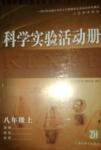题目内容
14. ________ was known to all was that the boss had broken his promise ________ he would give the workers
a rise.
14. What;that

练习册系列答案
 科学实验活动册系列答案
科学实验活动册系列答案
相关题目
题目内容
14. ________ was known to all was that the boss had broken his promise ________ he would give the workers
a rise.
14. What;that

 科学实验活动册系列答案
科学实验活动册系列答案